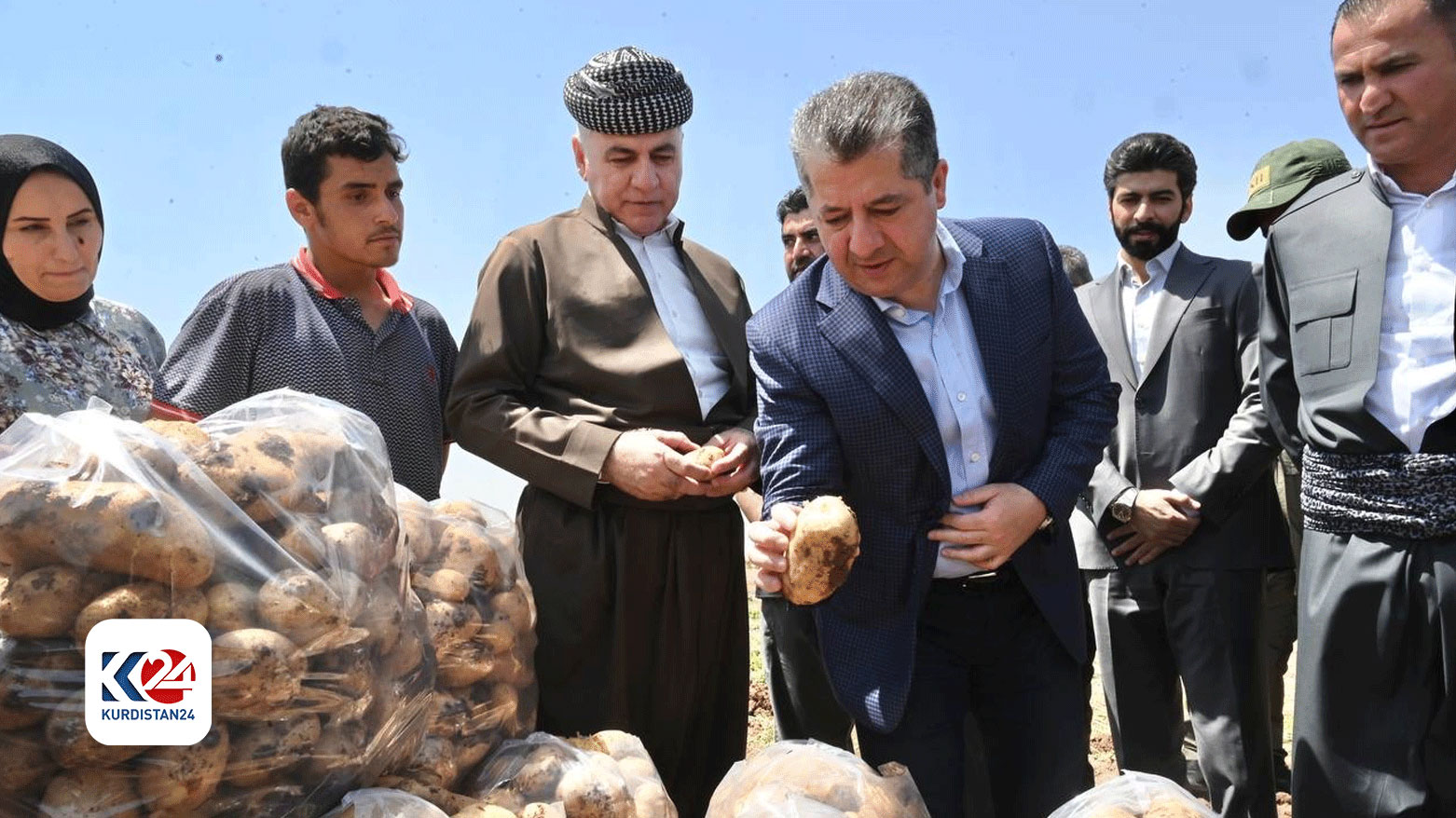PM Masrour Barzani propels agricultural revival in Kurdistan Region
The ninth cabinet is ensuring a brighter and more prosperous future for Kurdish farmers.

ERBIL (Kurdistan 24) – Prime Minister Masrour Barzani of the Kurdistan Region has been visiting different parts of the region daily, laying the foundation stones for new agricultural projects.
This initiative is part of the ninth cabinet's commitment to developing the agricultural sector and water resources while offering unwavering support to farmers.
A Turnaround in Agricultural Fortunes
Just over four years ago, farmers in the Kurdistan Region faced significant challenges. Their produce struggled to sell in markets, leading to decreased yields and dissatisfaction.
The influx of imported products further exacerbated the issue, leaving many farmers disheartened, with some even resorting to discarding their crops in protest.
Policy Reforms and Increased Investments
Under the leadership of Prime Minister Barzani, the ninth cabinet has implemented policies that have significantly boosted the agricultural sector. Investment in agriculture has risen sharply, from 1.8% to over 9% of the total investment in the Kurdistan Region.
Implementation of Agricultural Projects
In the past four years, more than 2,175 agricultural projects have been launched across various cities and towns in the Kurdistan Region. These projects include the digging of approximately 25,000 wells to support irrigation and water management.
One of the most notable achievements is the construction of the largest wheat marketing project for farmers. This initiative includes the establishment of 12 new silos and 27 open-air grain storage facilities, with a combined storage capacity of about 900,000 tons of wheat.
This has addressed one of the farmers' major concerns, ensuring better storage and marketing of their produce.
Self-Sufficiency and Export Growth
The Kurdistan Region has achieved self-sufficiency in several agricultural products, including potatoes, corn, cucumbers, and various fruits and vegetables. The ninth cabinet has also made significant strides in exporting local produce.
In 2022, the region exported 2,000 tons of pomegranates to the UAE and other Gulf countries. Plans are underway to expand exports to include grapes, honey, apples, and more to markets in the UAE, Saudi Arabia, Bahrain, the UK, and Europe.
Kurdish rice and sesame seeds have also found a strong demand in foreign markets, particularly in countries with a significant Kurdish diaspora.
Additionally, dairy products, olive oil, tomato paste, and other goods now meet a substantial portion of domestic needs.
Prime Minister Masrour Barzani's efforts reflect a comprehensive strategy to revitalize the agricultural sector in the Kurdistan Region.
By increasing investments, implementing strategic projects, and expanding export opportunities, the ninth cabinet is ensuring a brighter and more prosperous future for Kurdish farmers.